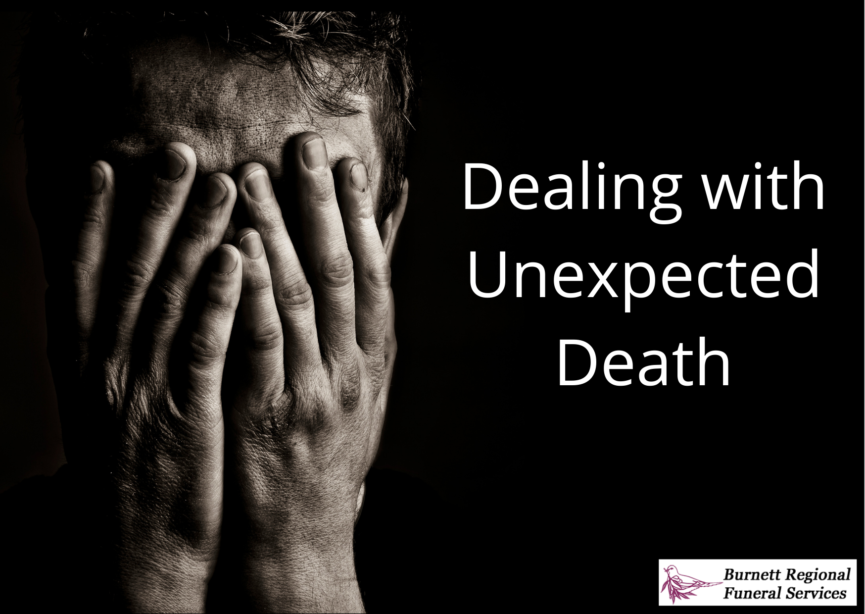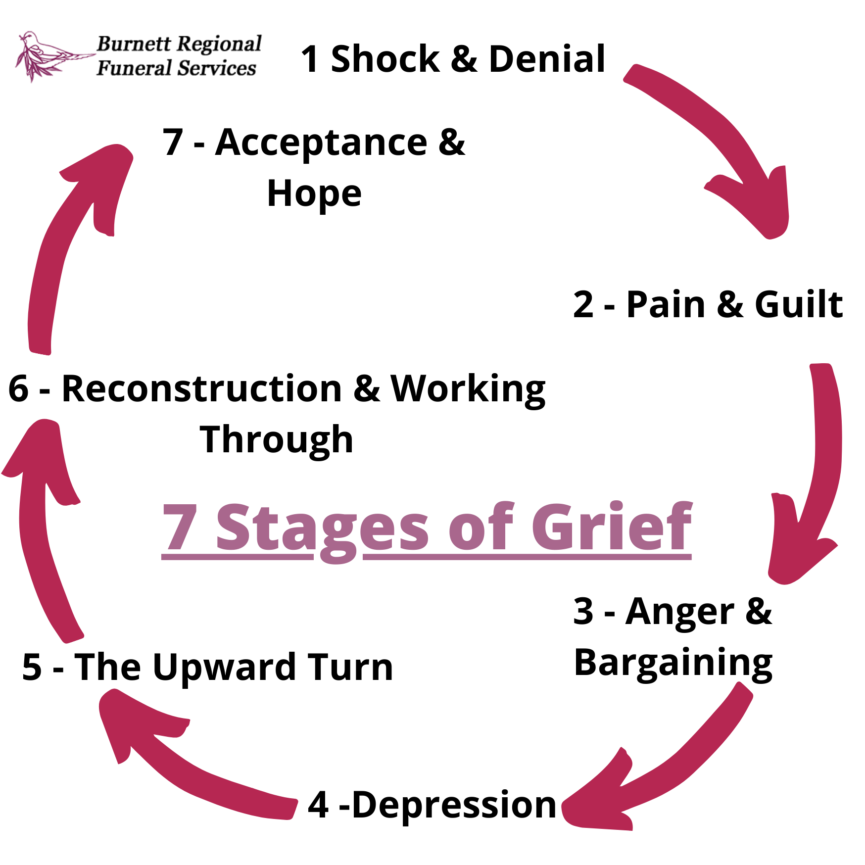How do you know what to do when someone you love is dying? Losing someone you love is one of the hardest experiences you will ever go through. When that time comes, please remember that you are not alone. The most important piece of advice we can give you about what to do when someone you love is dying is to take your cues from your loved one. Listen to them. Perhaps they want to talk about it; perhaps they don’t. Maybe they want to spend every moment they have left living life to the fullest; perhaps they want to spend their time surrounded by the people, things and animals that they love. How we respond to death is influenced by our own life experiences and beliefs around death – everyone responds differently. We encourage families to have conversations about death and what their final wishes are long before that time comes. Often we find that people who are dying want to talk about it, but they are worried about upsetting the people that they love. They may worry if they talk about their impending death that their loved ones will worry they have given up hope. While these conversations can indeed be difficult, it’s important to allow these discussions to happen and can be a valuable experience for both you and your loved ones. When someone you love is dying, their needs and wishes must be respected and come first. It can be easy to get swept up in your own emotions, but it is vital that everyone involved remembers that it is the person dying who should remain at the centre of all conversations and actions. If someone you love is dying, you might not feel prepared or ready for them to go. Please know that this is normal, and support services are available to help you during this time. Disease related charities such as the Cancer Council, or your local hospital’s palliative care team will be able to give you guidance and support during this time, not only about how to look after the person in your care, but also about how to look after yourself. If you’ve never lost someone close to you before, being around someone who is dying can be a frightening experience – if you feel this, it’s important to realise that it’s normal, and not to be ashamed of your fears and feelings. We suggest that you learn what to expect in the days, weeks and months ahead to allow you to ease your fear and confusion. Doing so will also help you to plan for the journey you and the person you care about are to go on together, and for the feelings and experiences that will happen during this time. Talking with someone who is dying We understand that talking with someone who is dying can be frightening. It’s normal to feel anxious, especially if the person is someone you love. Virtalhospice.ca suggests letting the person know that you are … Read More
Dealing with Unexpected Death
Coping with the death of a loved one is never easy but dealing with an unexpected death can be extra challenging. When a death is expected there is time to prepare. There is the opportunity to say goodbye, and to make a certain level of peace with what is to come. But when a death is unexpected, those left behind are left without those opportunities. A sudden, unexpected death can happen for a wide range of reasons – it may be a heart attack, stroke or other medical emergency, an accident or suicide. Regardless of how it comes about, dealing with a sudden death is challenging to even the strongest person While most people can and will experience shock, confusion and grief when someone close to them dies, these feelings can be amplified if a death is sudden and unexpected. Each situation will carry it’s own emotional difficulties, depending on the circumstances of the death. In fact, any sudden or traumatic death will bring with it a series of challenges on one’s internal resources. You might also experience disbelief, hope that news of the situation is wrong (particularly in cases where physical evidence is absent, for example, someone missing at sea or a plane crash), absent grief (where what has happened has not yet registered in your mind), regrets (particularly around the inability to say goodbye, things you wish you did differently, or things that were said or went unsaid), guilt, anger or a sense of helplessness. There is no right way to cope, and you’ve ultimately got to do what feels right for you, but here are some ideas that might get you started on the road to processing your grief. If you were with the person when they died, you might feel the need to share your story. While you might worry this could be frowned upon, we’d like to reassure you that it’s a perfectly normal response. You may like to seek the help of a registered professional, for example, a counsellor or psychologist, or you may prefer to confide in a trusted friend. You might also find that it’s important for you to be honest in sharing you experience, rather than glossing over parts of the story. If you feel the need to talk through your experience, make sure that it’s with a person who you know will make you feel safe and supported, whatever that may look like for you. It might also be helpful to share your feelings and experiences with other people who have gone through similar experiences. It’s important to surround yourself with people that understand that grief is a process and it will take time to make sense of what has happened. It is important during this time that the bereaved person feels loved, supported and listened to. When you’re dealing with an unexpected death, its important that you monitor your physical and mental state, and seek help for any health issues that may arise during this time of distress and … Read More
Remembering loved ones on special occasions
There are times in our lives when we want to be surrounded by the people we love – some of those days are huge, life changing days, like your wedding day, or more often they are days that happen every year, like religious celebrations, birthdays and Christmas. It’s normal to want one or both of your parents to walk you down the aisle when you get married, or to at least be at your wedding. Christmas is a time for giving, for love and for family – it’s natural to want to share in the joy of the day with those you love. When you have lost someone you love and you can’t do those things, let’s be honest – it can be really tough to deal with, and bittersweet if you’re still mourning. We’ve put together some ideas for how you can remember your lost loved ones on those special days and moments of your life. These special days can play a really important role in keeping your loved one’s memory alive. Have a think about what you want to achieve through your actions before you decide what to do. Do you want to feel as though they are there with you? Do you want to quietly reflect? Do you want to remember the good times and smile? If you’re a bride to be wishing that you had one or both of your parents to walk you down the aisle, a nice way to carry them with you can be to attach a photo of them to your bouquet or to create something wearable. You might choose to have a keyring made containing the photo that can then be strapped onto your bouquet with ribbon, or perhaps you would rather wear a beautiful locket with a treasured photo inside. You can also incorporate a special item received from your lost parent (or another lost loved one you wish was there for your special day) by wearing or somehow including a special item that you received from that person. At Christmas and other religious celebrations, many families have traditions they follow year in, year out. Think about the person that you have lost and what they loved most about that holiday or celebration. If you feel up to it, place a favourite family photo that includes them in pride of place and carry out their favourite tradition in their honour. Talk about the good times – that Christmas where mum had spent hours cooking then dad dropped the Christmas ham but somehow managed to save the day, or the way your loved one used to laugh so hard at the awful Christmas cracker jokes every single year, or how every year when you were children your mum would tuck you into bed on Christmas Eve and tell you your favourite story before warning you that Santa doesn’t visit unless children are fast asleep! Perhaps you have lost your spouse and your wedding anniversary is coming up. It can be incredibly … Read More
The 7 stages of grief
Grief isn’t just about death. We grieve many things – the loss of a loved one, the death of a pet, relationship breakdowns and divorce, imprisonment, injury or illness, losing a job… the list goes on. In fact, the Holmes-Rahe Stress Scale details 43 life events that can cause us to grieve. Knowing what are the 7 stages of grief is useful, because everyone goes through periods of grief in life. Having an awareness of the 7 stages of grief won’t stop you from grieving in a stressful situation, but seeing as the way we grieve might not always feel like it makes sense, it might help you to understand where you’re at, and why. We all experience grief differently – you might feel scared, angry, you may cry, or you might feel none of these. While grief isn’t linear, there generally is a pattern to the process of grieving. To begin with we need to know exactly what grief is. According to the Grief Recovery Method, “Grief is the conflicting feelings caused by the end of or change in a familiar pattern of behavior.” Remember, if you’re grieving, it’s okay to feel what you are feeling, and it’s okay to reach out for help and support if you feel like you need it. You’re not alone. Scroll to the bottom of this articles for a list of places that can help you. Shock and denial This is the beginning of the grieving process. Something lifechanging has happened, be it the death of a loved, a divorce, foreclosure on your home, a change in health or something else. You might feel numb and struggle to believe what has happened. Pain and guilt This is where you might feel like the loss or change is unbearable. You might feel guilty about what has happened, or because you feel that you are a burden to others at this time. Anger and bargaining At this point you might feel angry, and lash out or have outbursts of anger. You might also bargain with god or another higher power that if they just rectify the situation, you will do anything they ask, you are desperate for them to relieve the feelings you are experiencing. Depression This can often present as a period of reflection and withdrawal. You may feel lonely and isolated. Remember, you are not alone and it’s okay to ask for help. The upward turn You may feel that you are in a calmer and more relaxed state as the feelings of pain and anger start to subside. Reconstruction and working through At this point, you will start to feel like you can begin to put the pieces of your life back together and move forward. That isn’t to say you won’t still experience moments of sadness, but you feel you can now start to put one foot in front of the other and look ahead. Acceptance and hope Acceptance is a long process, we won’t lie. There is a very gradual … Read More
Dealing with anticipatory grief
What is anticipatory grief? We all dread getting the heartbreaking news that someone we love is terminally ill. Did you know that grief over the loss of the person with the terminal diagnosis often starts as soon as we get the bad news? Most people are familiar with the term grief and what it means, but many of us have never heard of anticipatory grief. Anticipatory grief is mourning a loss of something before it is gone. Chances are, even if you’ve never heard of anticipatory grief that you’ve experienced yourself if you’ve known the loss of someone you love was imminent. Anticipatory grief doesn’t just apply to situations involving a terminal illness such as cancer. You can also experience anticipatory grief when a loved one has an illness that changes their personality, such as Dementia. Not everyone experiences anticipatory grief, but if you do it’s important that you talk to someone to help you deal with it. What causes anticipatory grief? Anticipatory grief can come about for several reasons, and it may not always be the loss of your loved one’s life that you are mourning, at least in the beginning. When someone you love experiences a life changing or terminal illness, life changes for everyone around them. It may be that you are mourning for the life you had “before”, especially if you have become that person’s carer. It is natural to miss what was and for wish to things to go back to how they were if life has changed dramatically. You may feel that you have lost your sense of freedom and that you are burdened with the extra responsibility of caring for your ill loved one, and this in turn may bring feelings of guilt. However, feeling like this is a very normal response to such a big change to your life. Healthdirect.gov.au also states that you might grieve for the memories you share with your loved one, particularly as they lose their independence, their memory, and their ability to recognise you. You may grieve for future plans that will never happen and experience intense and conflicting emotions. Symptoms of anticipatory grief If you are dealing with anticipatory grief, it is likely that you are experiencing a wide range of emotions about the impending loss of the person you love, or, in the case of a permanently personality changing illness, the loss of the person as you know them before they are truly gone. You may feel anger, fear, resentment, guilt, dread, powerlessness and anxiety even though the person is still alive. Writer Angie Drakulich shares her experience with anticipatory grief for her father in an article published on the website Psycom. She writes, “[These thoughts and memories] invade my mind as I try to fall asleep and they are the first images that appear when the alarm sounds. They cloud my vision as I drive from home, to work, to the grocery store, and they emerge through tears as I try to get away … Read More
How to talk to children about death
Most people find death something that is uncomfortable to talk about, but knowing how to talk to children about death can be particularly difficult. If not done right, it can be a traumatic experience for both the adult and the child taking part in the conversation. You might not have considered the need to discuss death with your child, but unfortunately it is something that they will definitely have to deal with during their life. Whether your child’s first experience with death is that of a much loved pet, a grandparent sibling, parent or friend, you will still need to be prepared for the big conversation. It may be that your child hasn’t experienced the death of someone or something they love before, but they are worried about death in some way. You will still find this article useful if that’s the case for you. It can often be helpful to initiate conversation around death with your child before they experience the death of a loved one. We know it’s not easy, so before you jump in, grab a cuppa then have a read of this blog post to arm yourself with what you need to know about talking to your child about death. Before you start The first thing to remember is that death is a part of life. All living things die eventually. Plants, animals, humans… we all die. We suggest you are as honest as possible while still remaining age appropriate for the child you are speaking with. If you have the opportunity, it’s best to think about what you are going to say and how you are going to say it before the conversation takes place. Consider some of the questions your child might ask you about death and dying (we have listed some examples of questions children ask about death later in this article) and have an answer ready. How you answer may depend on your own religious beliefs if you have any. If you don’t know something, it’s okay to admit that, but above all else be sensitive to your child’s emotions during this conversation. Find a comfortable place to have this important chat with your child – somewhere that is not only physically comfortable, but also somewhere they feel safe and loved. If you have the conversation about death sprung on you, do your best to remain as relaxed as possible. While showing some emotion is fine, it isn’t the time for big displays of emotion. Take your time. Part of the reason such conversations can be so difficult is because we often avoid talking about things we find upsetting. Indeed, death is frequently a taboo subject, so if you feel like you will struggle with this conversation, practice with another adult first. Use the word ‘death’ This might sound harsh to some, but by using the word death we help to avoid confusion. Think of the different words and phrases we use to say someone has died – passed, passed away, passed … Read More






